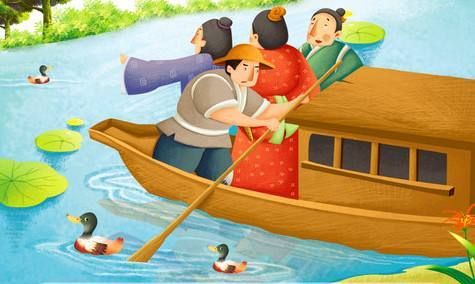EP31 自由行 Free Style Travel

EP31 自由行 Free Style Travel
How to say traveling with groups and free style travel;
Pros and Cons of traveling with a tour group
Part I Chinese 101
Dialogue:
A:你喜欢跟团还是自由行?为什么?
A:nǐ xǐ huān gēn tuán hái shì zì yóu xíng?wèi shén me?
Do you prefer go travel with a tour or self-guided? Why?
B:当然是自由行,因为自由行比较灵活。
B:dāng rán shì zì yóu xíng,yīn wèi zì yóu háng bǐ jiào líng huó.
Of course self-guided, because it’s more flexible.
A:但跟团比自由行更省心。
dàn gēn tuán bǐ zì yóu xíng gèng shěng xīn.
But compared with self-guided travel, go with a travel tour is more worry free.
Words & Expressions:
【喜欢】xǐ huān:like, prefer
【跟团】gēn tuán
【还是】hái shì or; still; nevertheless
【自由行】zì yóu xíng: self-guided tour
【为什么】wèi shén me: why
【因为】yīn wèi: because
【比较】bǐ jiào: comparison; compare; contrast
【灵活】líng huó :flexible
【更】gèng: more
【省心】shěng xīn:save worry
Part II Language Tips
Pros and Cons of traveling with a tour group
Part III Story of The Day

刻舟求剑 Cut the boat and find the lost sword
刻舟求剑
kè zhōu qiú jiàn
Cut the Boat to Find the Lost Sword
刻 means 'to cut', 舟 means 'boat', 求 means 'to find' or 'to ask for', 剑means 'sword'. The idiom is used to mock people who stick to rituals or habits when the circumstances have changed. Anyone who rigidly adheres to the old ways without regard for changes in circumstances, is doing the same as the man who 刻舟求剑.
Literal meaning: Cut the Boat to Find the Lost Sword
Explanation: Circumstances alter cases

